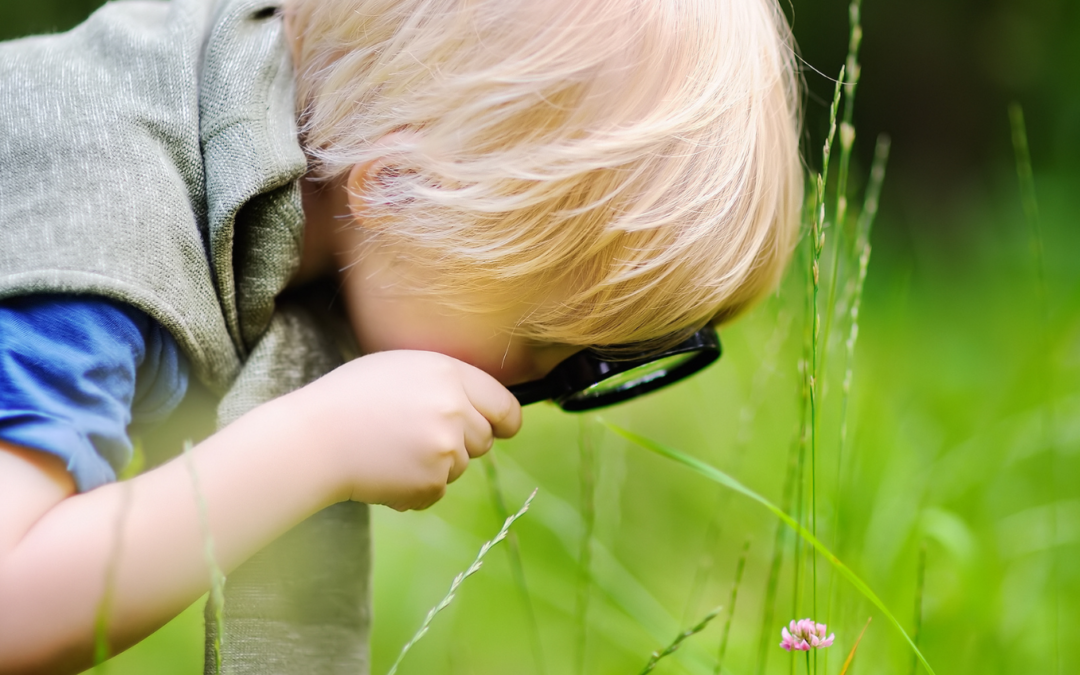By Bianca Gay, Educational Leader
As a mother of three boys, studying my bachelor of teaching, working part-time as an educational leader and with sixteen years experience in Early Childhood; I am well aware of the importance of outdoor play and learning! Under Eights Week is approaching and this year the theme is ‘Children celebrating outdoor play and learning’.
My Experience
My personal love for the outdoors began in Papua New Guinea (PNG), where I was raised until I came to boarding school here in Brisbane in year 8. Being raised in PNG was an amazing experience that taught me a lot about culture and nature. We had a lovely life of living in a town surrounded by luscious rainforest, colourful reefs, amazing fishing and 4×4 wilderness exploration that some people could only dream of. Life was also very restrictive, living within the confines of a six-foot razor wire fence, this was where all my outdoor after school adventures occurred. My imagination was my best friend, along with the leafy gardens, the swimming pool, the trampoline, and my brother!
One of my earliest primary school memories was spending lunchtimes running through the bush land playing tag. We would run, duck, jump and slide as far as we could until we heard the ring of the cowbell from outside the mess hall, then it was a frantic dash back uphill to class before we got in trouble for being late. Imagine allowing our primary children this much freedom during a school day, a lot of schools now even separate the grades within the playground.
The History
Historically outdoor play has been valued and children have been given a large degree of freedom to roam outdoors, often in mixed age groups, where older children will supervise younger children. In our modern society children often don’t have as much freedom or access to outdoor environments. As families it is important that we lead by example and provide plenty of opportunities for our children to be engaged in nature.
The Importance of Outdoor Play
Outdoor play is critical for our children’s growth and development. Here is some information from our curriculums and guiding documents in the early years.
- The Australian Curriculum: “There is an opportunity to encourage this curiosity and develop skills and knowledge to safely enjoy the outdoors. It is also important that students at this age learn the skills to assess and move on uneven and varied surfaces” (Australian Curriculum, Assessment and Reporting Authority [ACARA], v.8.4, 2018).
- The Early Years Learning Framework: “These spaces invite open-ended interactions, spontaneity, risk-taking, exploration, discovery and connection with nature. They foster an appreciation of the natural environment, develop environmental awareness and provide a platform for ongoing environmental education” (DET, 2019, p. 18).
- The National Quality Framework highlights outdoor learning in Quality Area 3 – Physical Environment, “The service environment is inclusive, promotes competence and supports exploration and play based learning.
- At Kenmore Hills Early Learning our physical environment policy states that ‘Educator’s plan and program learning experiences…effectively using our indoor and outdoor spaces…to encourage child-centred learning, exploration and investigation (Kenmore Hills Early Learning, 2021).
Ideas for your family
So how do we actually get children outside? The theme of this year’s Under Eights Week – ‘Children celebrating outdoor play and learning’ is a great reminder of the importance of celebrating nature and time outside. “This year’s theme is about creating cultural change, promoting sustainability and meaningful engagement in outdoor learning environments for young children.” (Early Childhood Australia). Here are some ideas that you could get involved with as a family.
- Find your local community garden or composting hub and get involved. We love taking our food scraps to our local composting hub.
- Check out the best short walks to do in your local area https://parks.des.qld.gov.au/__data/assets/pdf_file/0025/161917/short-walks-guide-south-east.pdf
- Try a family nature hunt. Make a list of things you could find and then go for a walk and see what you can discover.
- Balance ‘screen time’ with ‘green time’.
- Take something different to your local park, try bringing bubbles, a kite or a bag of balls.
- Go outside at a different time of day! Check out the sunrise or look at the stars.
A love of nature is something that my children are developing and I want to continue this connection as they grow.


Recent Comments